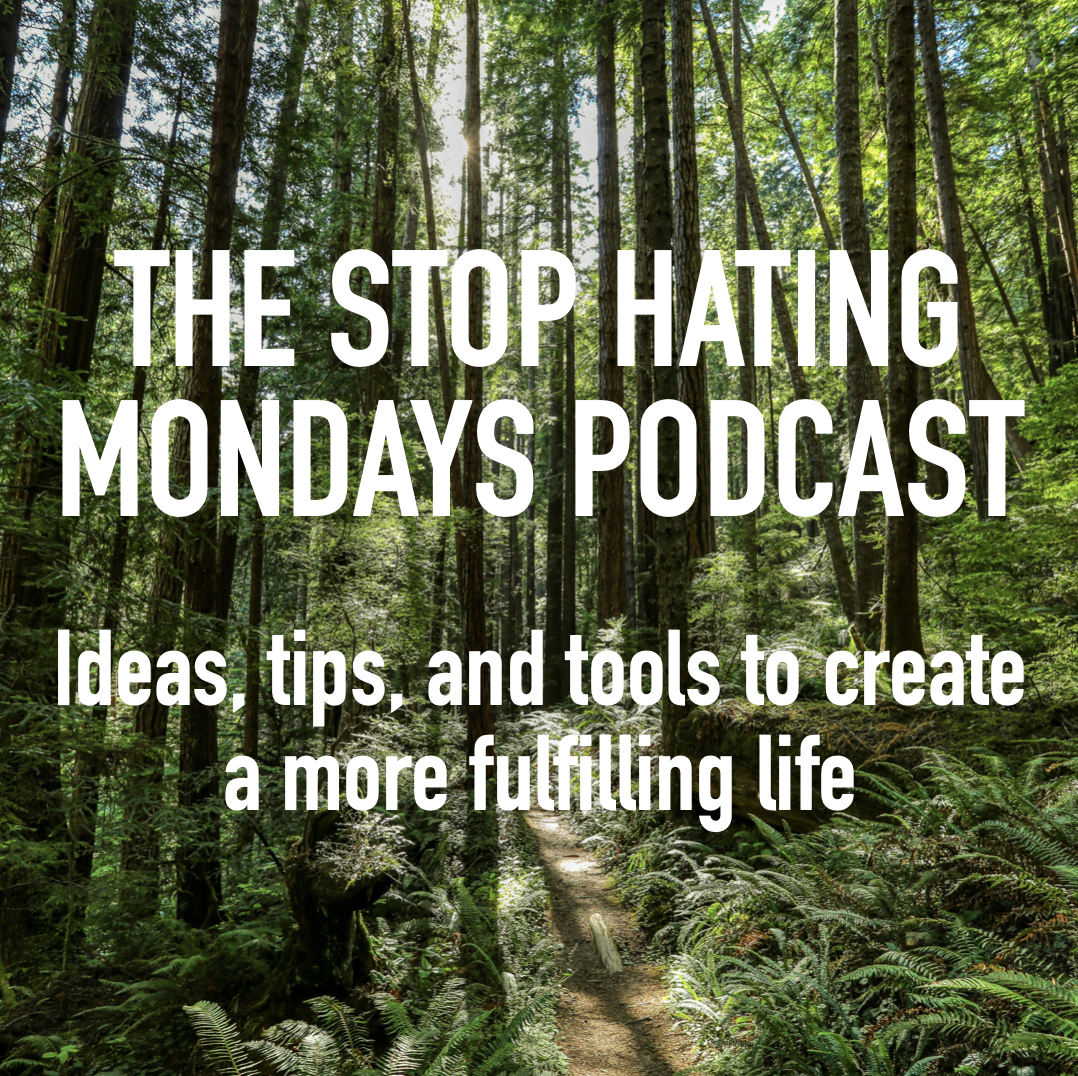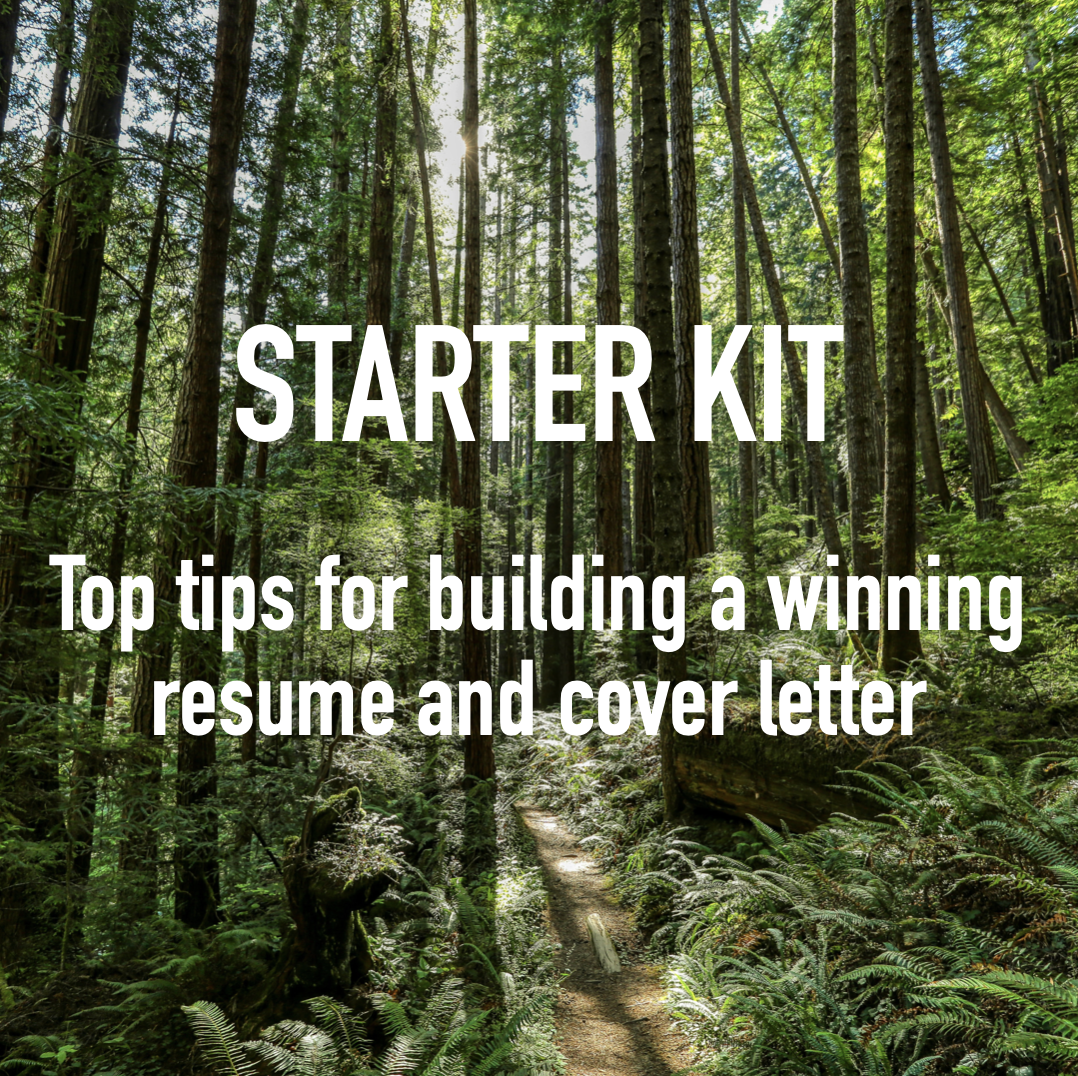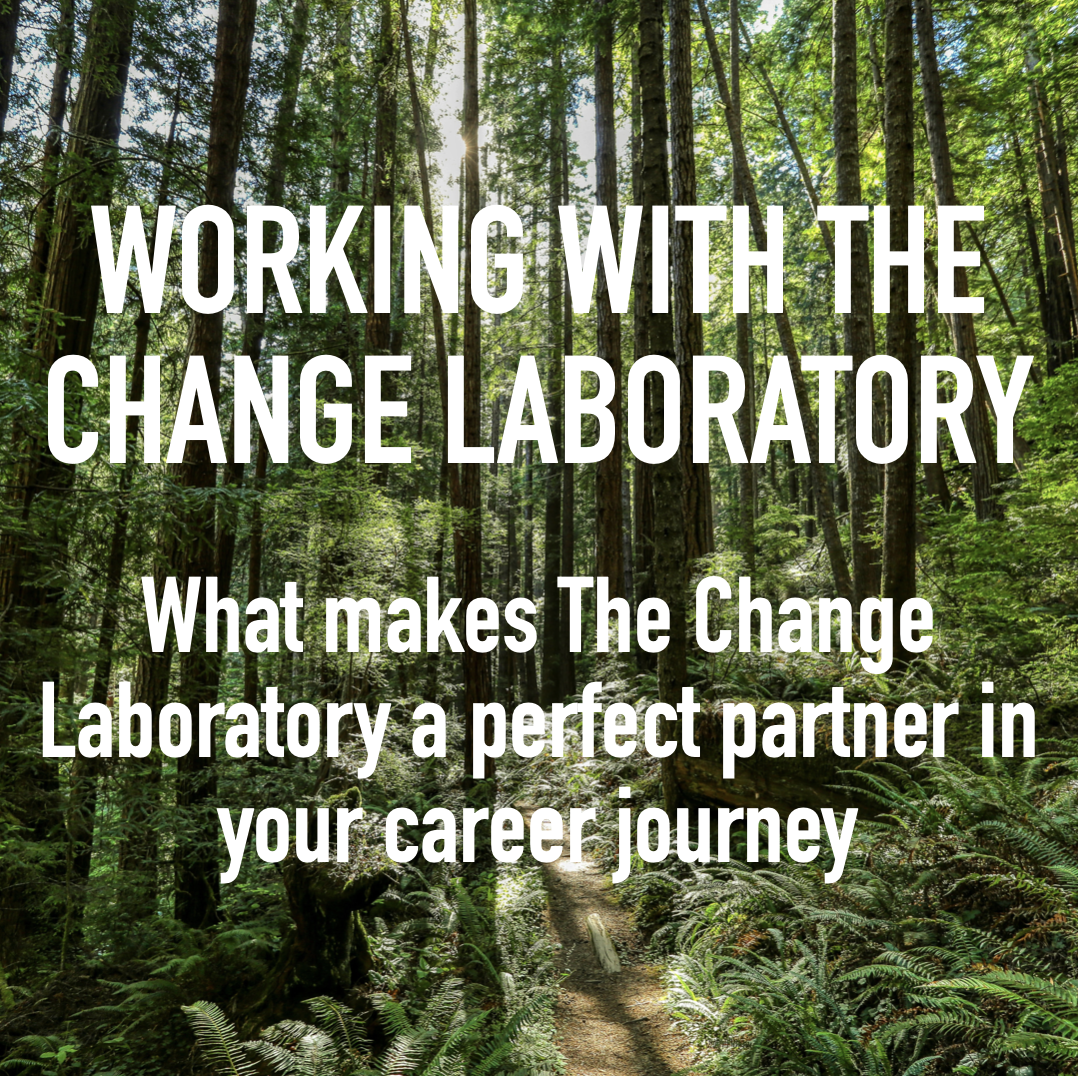How to Find Your Passion - The Stop Hating Mondays Podcast
krandcr2
"Find your passion" is pretty terrible advice. Or at least the implications of the advice – the glibness with which it is thrown around – is terrible because it belies the truth, which is this.
There’s nothing simple about finding your passion.
But working to find your passion is a very worthy goal. So, this episode is dedicated to practical, honest, and effective tips for how to find your passion.
Transcript
(Transcripts are auto-generated and may contain minor errors)
Caanan
People are often surprised when we talk about passion, which – given that the change laboratory is all about helping people become more personally and professionally fulfilled – is something we talk about a lot.
What they find most surprising is that we are not afraid to say that this advice to find your passion – advice that you literally see everywhere (go to social media right now. Two quick scrolls and you will find this advice) – is terrible advice. Or at least the implications of the advice, that sort of glibness, is really terrible.
Why do you think that's terrible advice? Because it belies the truth, which is that there's nothing simple about finding your passion.
Let's be clear, deciding to find your passion is a great goal. We want you to find your passion and you should want to find your passion. But as I said before, find your passion tends to be this sort of oversimplified advice that belies the real work that discovering passion actually requires.
Caanan
And because find your passion is marketed as this sort of simple task – you know, like something you find while you're sipping a Starbucks or having a craft brew or mastering a yoga pose – It makes people feel inadequate and like they like failed when they aren't magically stumbling upon their passion. And that's a terrible feeling and it's keeping people from actually finding their passion.
How sad is that?
Well, we want to change that, so we're dedicating this podcast to some practical, honest, hopefully affective tips for how to find your passion.
I'm Caanan. This is Kent. You are listening to the stop hating Mondays podcast.
Caanan
And we're going to help you figure out your passion.
Kent
Yeah, this is a biggie, and again here it's one of these foundational things we're doing you. You see this across our website. We deal with this in the work we do constantly because, you know, work groups want to have shared passion. People want to have passion in their life, but as Caanan was saying, people don't know what it really is. And they think it's some easy thing that just sort of drops in their lap.
So, an interesting component of that is that people don't really know the difference between what they can do – what they're good at – and what they should do. I can’t tell you all the people we've worked with in companies and individuals who are super duper high achievers. And they when they get honest they hate what they do. That's a pretty big indication that you're doing what you can do. 'Cause we can all be trained and and all that, but probably not doing what they should do. So, the distinction comes as a surprise to people. And it's never been clear to us than it is now in this current landscape, the pandemic, the economic crisis. We're receiving a rush of new clients who are searching for something new or some way to navigate all this disruption being experienced. The problem is they don't have the basic foundational information they need to even begin to effectively answer these questions.
So. Our first tip on the road to finding your passion is to figure out your strengths and values.
Caanan
Oh yeah. Yeah yeah, yeah.
The distinction, yeah, that distinction between what you can do and what you should do is a really big one, and one that is really central to the idea of finding passion.
I mean, people can become masters of something. Like you said, they can be become really good at a skill and they may actually even like feel a sense of fulfillment from doing that. But we know from both personal experience and from all the work we do that just mastering a skill isn't enough. You need to know your strengths and values.
And then you need to make sure your actions are actually aligned with your strengths and values. And that allows you to really plus up that feeling of achievement to what I would say is the level of true passion.
Sometimes it's helpful to use a metaphor, so let me let me try this.
Consider the idea of gardening. You can become an effective gardener. You can, you know, get plants to live, which is a real skill. But knowing how to keep plants alive is a a much different thing than making a garden like actually flourish.
Knowing your strengths is like knowing which plants are going to naturally thrive in your area or in the soil you have. So, instead of randomly picking seeds or plants and you know busting your butt to make them live, you're doing something different. You're picking plants that are naturally going to thrive.
And that's what strengths are.
Knowing your strengths helps you move beyond mastering a skill and actually empowers you to pick actions that are naturally inclined for success. So yes, selecting plants that are naturally going to thrive still demands that you be a good gardener. But getting those plants to thrive requires so much less time and energy. It's like it just happens naturally.
Yeah, so I like that. That's your metaphor for strengths. I'm going to plus up that metaphor and talk about values. If I want to bring values into that equation, it's knowing why you are gardening, knowing the why behind what you're doing.
Caanan
Oh yeah.
Kent
Yeah.
If you know why. Your actions are imbued with meaning.
Actions that are aligned with your strengths and values come more easily and fill you with a sense of purpose. Those are key ingredients for passion. Knowing your strengths is a big deal, but even more people are out of touch with their values.
And I want to say here too, this is work we do with people and it's way too much to get into in a podcast – these exercises to find your strengths, to find your values are actually relatively easy (and then you can go deeper and deeper and deeper) but it's just too much to get into, which is saying this idea of the why. Like ,why are you doing this in the first place? Getting in touch with your values is such a big component of this march to finding your passion.
Kent
A life is made of many components and many roles, but there's only one you.
Do you really have a handle on all these components?
How do you feel like you're doing it all the different aspects of your life? The answer that question is fundamental to finding passion. So, we've got what we just discussed. Know your strengths. Know your values.
Tip #2. Figure out your life.
Caanan
Yeah, as we already established, I kind of think in metaphors. So, let me try another one here.
Picture a wheel that is divided into several segments you know, like a pizza. Now I'm mixing metaphors, but for this wheel to work each of the segments of that wheel need to be complete. If you've got a segment that is missing or it doesn't meet the other segments, the wheel is just not going to roll smoothly.
So now imagine that that wheel represents. You. Your life. And each of the segments of the wheel is a different part of your life. So, like your finances, or fitness, or your family.
Kent
Nutrition, community, giving back.
Caanan
Yeah, what we recommend doing is looking at each part of your wheel. All those different little segments and then giving them a score. So, I'm going to say my finances feel like an 8 out of 10 or my fitness feels like a 5 out of 10. I'm identifying how I feel about the different aspects of my life and what that allows you to do is see where there are gaps in your life, right? You can recognize and start to really be honest with yourself. Like, my finances are in mess. Or I feel unhealthy.
It's identifying those areas that helps you understand why your journey is going to be bumpy.
Kent
Yes, so you envision that pizza or the wheel moving along an there's all these unevenly healthy or unhealthy segments, and it's creating a very uncomfortable ride. So, the idea is to smooth out that wheel – smooth out that pizza, and the best way to do that is to start focusing on bringing up those numbers so you have a complete whole even wheel and a big part of this is getting rid of shame because there's so many things that, you know, we're we feel like we're not good. That, you know, we have our fitness at a one 'cause we never exercise. We don't like our bodies. We don't like the way we move and we're uncomfortable in their own skin. Part of this facing each slice of your life is about naming it. Knowing what your relationship with each slice of your life is in sort of working on.
Those slices that need the most work to start creating a fuller, even wheel.
So ironically, a lot of people feel shame because they haven't stumbled upon their passion. It's really kind of weird. You have to, like, acknowledge your shame before you find your passion, but people feel shame because they don't know the passion. As we outlined in the opening, this is a core misunderstanding of passion that holds a lot of people back.
Shame keeps people from doing the work they need to do. Even recognizing that there is work that they need to do in order to find their passion. So, here's our third and final tip.
Kent
Know your strengths and values.
Examine your life wheel.
You do those two things… but the magic is in this tip. This third tip, where you're mixing that knowledge from tip one and tip two to find your passion.
Caanan
Yeah, this can all start to sound like a lot because we could talk forever about passion. So, I just want to break this one down a little bit more. The first step to finding passion is to figure out your strengths and values. That was tip one and there are a lot of ways to do that. And if you need help with that, get in touch.
The second step is to look at your life wheel. What we just talked about in Tip 2 and start using your strengths and values to bring each segment of your life wheel up to a higher ranking. You're using the strengths and values to make your wheel more complete.
So, you may be thinking, “wait, hold on, your second tip one and two equals tip three?” Well yeah, that's exactly right.
You simply can't find your passion without doing steps one and two. You can't even try to find your passion without knowing your strengths and values. And having a really clear understanding of your life.
Kent
The way you're doing this is you have this core knowledge of your strengths and your values.
“What am I naturally good at?”
“What am I naturally inclined to do?”
Your values what's the why behind it and you're able to take that knowledge and apply it as you look at each slice of your life. Now that I have this deeper understanding of myself, how can I apply why I'm doing all this? My purpose to improving my fitness evaluation. My evaluation on relationships, finances, career. It's the interplay between the awareness of your strengths and values and the understanding and honest assessment of your life wheel that creates the magic. This what we're calling Tip 3.
They have.
Caanan
OK, so let's quickly recap because there was a lot there.
Tip one. know your strengths and values on a real level.
Tip two. Figure out you. Create your life wheel and understand all the components of your life.
And then tip three. Put your strengths and values – along with your awareness of every aspect of your life – and use that information to start building a passion. Real passion. Underpinned by all that self-awareness you've gained.



